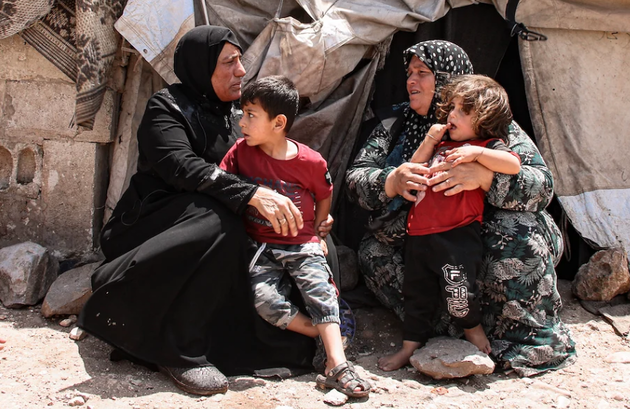Britain agreed to pay France another 72.2 million euros ($74.5 million) to prevent migrant boat crossings under a new deal signed on Monday that underlines improving ties between the neighbours.
According to AFP, around 40,000 people - most of them Albanians, Iranians and Afghans - have crossed the Channel to England from France this year. The figure is well over last year's 28,561, which was a thousand-fold increase from 2018 when migrants and asylum seekers first began sailing inflatables across one of the world's busiest shipping channels.
"There are no quick fixes, but this new arrangement will mean we can significantly increase the number of French gendarmes patrolling the beaches in northern France," Britain's Home Secretary Suella Braverman said in a statement after signing the accord with French counterpart Gerald Darmanin.
The extra money will fund a 40-percent rise in the number of security forces patrolling France's northern beaches, meaning an additional 350 people, the French interior ministry said. For the first time, teams of observers will be deployed on both sides of the Channel to "strengthen common understanding". "The arrangement means, for the first time, specialist UK officers will also be embedded with their French counterparts," the British interior ministry said.
Successive British governments have paid France hundreds of millions of euros over the past decade to improve border security on the Channel coast, particularly around the port of Calais. Recent French purchases with UK money include thermal-imaging binoculars, mountain bikes, motorbikes, drones and vehicles which are used during beach patrols. But suspicions have persisted in Britain, fanned by the right-wing media and members of the ruling Conservative party, that Paris is not doing enough.
The agreement reflects warmer ties between the France and the UK since British Prime Minister Rishi Sunak took the helm, after years of acrimony under his predecessors Boris Johnson and Liz Truss. One of the worst public rows between Johnson and French President Emmanuel Macron came in November last year when 27 migrants drowned in the Channel. Sunak and Macron held a cordial first meeting last week on the sidelines of the UN climate summit in Egypt and will meet again this week at the G20 in Indonesia.
The issue of how to manage the flow of asylum seekers and economic migrants from Africa and the Middle East has strained diplomatic ties all over Europe for much of the last decade. France and Italy, which has elected a new far-right government, clashed last week after Rome refused to let a rescue ship carrying migrants dock at its ports. Macron and his Italian counterpart Sergio Mattarella urged a return to "full cooperation" on Monday after last week's standoff which ended when France allowed the boat to disembark its passengers.
On the Channel coast, doubts remain about whether incremental changes in the number of French officers patrolling the rugged dunes and wide beaches can reverse the rising tide of crossings. Observers say the migrants' boats are getting bigger, the tactics of people smugglers more sophisticated, and departures are being recorded along a widening stretch of coastline. On Saturday, some 972 people were detected making the crossing in 22 boats, according to UK figures. The French coastguard is adamant that it cannot intercept boats once they are in the water because attempting to do so could cause them to capsize.
The surge in arrivals in the UK has caused a logjam in asylum claims and increased accommodation costs estimated by the UK government at £6.8 million ($7.8 million) a day. The ruling Conservative party has grappled with the issue for years and under Johnson devised a scheme to send asylum seekers to Rwanda in a bid to deter new claimants.
"I've watched so many British ministers over the years coming new to the problem and deciding that they are going to get a grip and somehow solve it," former British ambassador to France, Peter Ricketts, told AFP. "But they all end up falling back on the realisation that the only way to bring this under control is by working with the French. To their credit, the Sunak government has reached that conclusion quickly and today's agreement is good news," he added.






